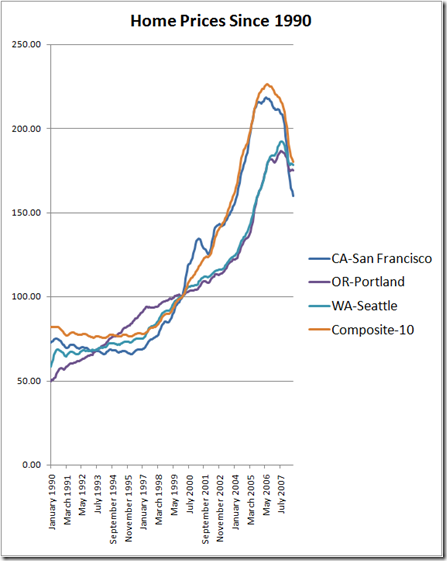Continuing my slow, on-going look at the results of the August primary for the Washington State 41st Legislative district, this week I've been trying to answer the question of which candidate has greater support among "education voters", those who rate a candidate primarily on how strong he/she is on education issues.
Bear with me, because I'm making a lot of assumptions, so the following analysis is murky and prone to all kinds of noise. But I'm interested at the high level if there is a strong correlation between certain types of voters and those who go for either Marcie Maxwell or Steve Litzow. Of course, it's very hard to tell without doing an actual poll of voters, but there is one rough measure that I thought would be interesting to compare: those who voted in favor of Simple Majority during the last election.
Short answer: at least on Mercer Island the correlation is very weak and it's hard to read much into them. Here's the data by neighborhood:
| | Litzow % in Primary | L-(SM) | M-(SM) |
| Island Park School | 52% | 57% | 52% |
| Islander Middle School | 54% | 63% | 53% |
| Lakeridge School | 52% | 55% | 51% |
| Mercer Is Boys and Girls Club | 54% | 69% | 59% |
| Mercer Island City Hall | 59% | 83% | 56% |
| Mercer Island Fire Station | 43% | 61% | 82% |
| Mercer Island High School | 52% | 66% | 62% |
| West Mercer School | 50% | 58% | 58% |
The column L-(SM) represents voters who backed Steve in the August Primary as a percentage of those who voted yes on Simple Majority last Fall. M-(SM) is the percentage relative to Simple Majority of Marcie voters. No, the data aren't adjusted to account for different levels of turnout, and of course issues were completely different in the two elections, but for this first, rough look, I'm assuming both candidates are equally affected by any differences, so that any net biases cancel each other out.
Although the results are too weak to say there is any advantage to Steve Litzow, this is not good news for Marcie Maxwell. Many people would have expected that, given her strong activities on behalf of Simple Majority in the last election, she would have an advantage among these voters, however slight, but that appears not to be the case, and arguably the data shows the opposite.
Assumptions and caveats
- To many people, Simple Majority is about taxes and whether it should be hard or easy to raise them. But I'll argue that the campaign promoting Simple Majority did a good job of promoting it as a simple referendum on public schools, period. If you think schools are important enough to raise taxes if necessary, then you probably felt bad voting against Simple Majority so that's the sense why in this analysis I'm using it as a proxy for "education voter". Very weak assumption, but it's the best I've got.
- Although neighborhoods tend to have similar voting patterns, many other factors have far more influence on voting behavior at this level. A candidate who did lots of doorbelling, for example, would trump other opinions, if all else were equal.
- I have no idea how likely it is that a Simple Majority supporter turns up in the primary. If Simple Majority voters were underrepresented in the primary's low turnout, then this analysis is meaningless.
After the Simple Majority vote last Fall, I demonstrated that there were some patterns consistent among the SM voters, so aside from these huge caveats I'll argue that the fact there aren't more significant patterns tells you at minimum whatever drove Simple Majority results is not driving results for this election.

